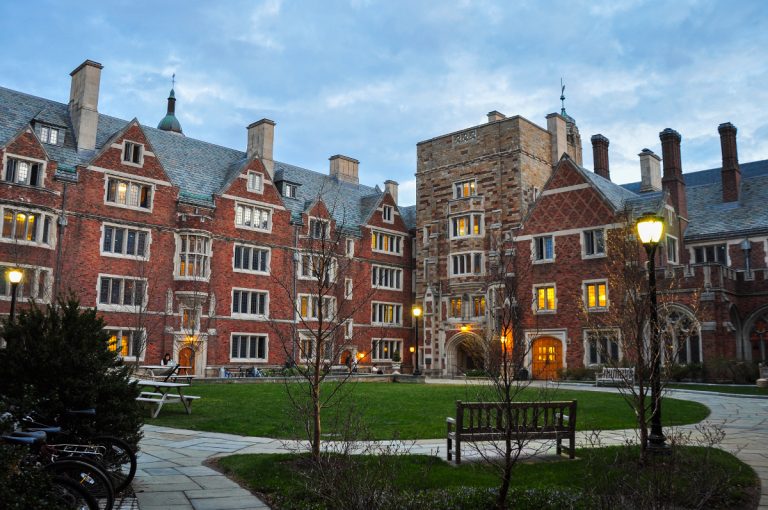
Yale University announced on Saturday that one of its residential colleges named after John Calhoun, a former U.S. vice president who supported slavery, will be renamed.
“The decision to change a college’s name is not one we take lightly,” said Yale president Peter Salovey.
“But John C. Calhoun’s legacy as a white supremacist and a national leader who passionately promoted slavery as a ‘positive good’ fundamentally conflicts with Yale’s mission and values,” he added.
The announcement comes after years of calls from activists for the college to have its name changed.
The school, currently known as Calhoun College, will take on the name of Yale alumnus Grace Murray Hopper and will go by Grace Hopper College.
In April last year, Salovey had said that the school would keep Calhoun’s name. But following an incident where a black dining services worker, Corey Menafee, used a broomstick to smash a stained-glass window at the college that depicted slaves, the university appointed an advisory panel to mull over a possible name change.
Criminal charges against Menafee have since been dropped and Yale has rehired him.

(File) Admiral Grace Hopper is honored by Navy Secretary John Lehman, during her retirement ceremony aboard the USS Constitution, in Boston, Mass., on August 14, 1986. Image via AP.
Who is Grace Hopper?
Hopper, who died in 1992 at the age of 85, earned her Master’s and PhD in mathematics from Yale in the 1930s.
She later enlisted in the Navy and “used her mathematical knowledge to fight fascism during World War Two,” said the university, before she went on to invent a ground-breaking computer programming language and was one of the first programmers of the Harvard Mark I computer.
Last year, former U.S. President Barack Obama awarded her a posthumous Presidential Medal of Freedom.
Kica Matos, one of the leaders of the Change the Name Coalition and a fellow at Yale’s Stiles College, told the Guardian: “This is a victory for the New Haven community.
“We have fought hard for the university to rename Calhoun and finally they stepped up to do the right thing. No longer will John C. Calhoun’s name disgrace the city and the university.”
Salovey said he hoped the university community would now “embrace Grace Hopper and get to know her better”.

John C. Calhoun, 7th vice president of the United States. Image via Wikimedia Commons.
Yale’s slavery connections remain
Despite the official name change, Yale administrators added that the school will not remove symbols of Calhoun on campus, such as engravings and a statue that tops the landmark Harkness Tower, nor will it discourage alumni if they want to continue associating with the Calhoun name.
Chris Rabb, a 1992 Yale graduate, said that simply changing the name would not achieve much.
“I’m underwhelmed. This choice makes no corrective move toward reconciliation in light of not just the legacy of John C. Calhoun, but Yale University’s ties to slavery and systemic racism.
“To me the real issue is context. How do you contextualise the choice made in the 1930s and the choice it made ever since to keep it,” he told the Associated Press.
Rabb, who is now an educator and state representative in Pennsylvania, previously criticised his alma mater’s links with slavery.
During his time at Calhoun College, he successfully lobbied for the removal of one of the college’s stained-glass windows, which depicted a black man in shackles kneeling before Calhoun.
“What does it mean now in terms of Yale’s connections to slavery and issues of social and racial justice in a diverse city?” Rabb questioned.
Liked this? Then you’ll love these…
Columbia University tackles its links with slavery
Where did the artist behind Beyoncé’s pregnancy photos study at?







